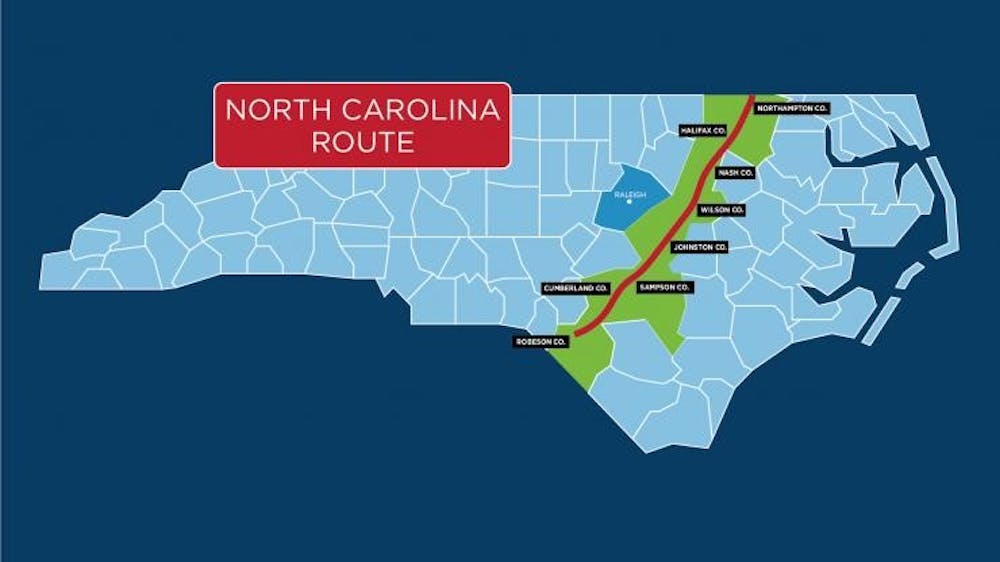Construction on the Atlantic Coast Pipeline, planned to be in service by 2019, may be delayed as the N.C. Department of Environmental Quality submits a fourth request for further information regarding the pipeline’s effect on the areas surrounding its proposed path.
The pipeline, which would cross West Virginia, Virginia and North Carolina, plans to bring a new source of natural gas to its surrounding communities. The DEQ’s request gives developers 30 days to respond. The request asks officials to provide further information regarding the pipeline’s impact on economic development and water quality, as well as several other clarifications.
Tammie McGee, a spokesperson for Duke Energy, said she doesn’t anticipate any construction delays as a result of the DEQ’s request, and this is how the process typically works.
“We’ve undergone three years of scrutiny by federal and state agencies,” she said. “We submit documentation, the agency asks us questions, we submit further documentation – it’s very normal for it to be a back-and-forth process.”
McGee said because North Carolina only has one interstate natural gas transmission line, the state is in a very vulnerable position. This natural gas, originating in the Gulf of Mexico, is brought to the state by the Transco pipeline.
“It can mean we’re in trouble when a Hurricane Katrina or Rita comes through and damages some of the infrastructure on the Gulf of Mexico," she said. "It can mean, like during the Polar Vortex a few years ago when natural gas supplies got constrained, that the prices shoot up and customers have to pay a lot more for that natural gas. And it wasn’t really because we didn’t have enough supply to meet that winter demand – it meant we didn’t have a way to get it here.”
McGee said Piedmont Natural Gas and Duke Energy saw this problem, coupled with anticipated population growth in North Carolina and felt the Atlantic Coast Pipeline was necessary to meet future household and industry energy needs.
Mike Giles, coastal advocate for the southeast region of the North Carolina Coastal Federation, said the N.C. DEQ’s request for more information was likely because the developer’s application was not transparent and there was a lot of information the state realized was missing.
“It’s part of the process, and I hope the request is taken seriously and they provide enough information to satisfy what the state is asking for,” he said.



